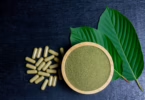Recent regulatory win may expand drug’s market
Investors in cannabis and psychedelic drugs often talk excitedly about their promise to take a slice of the $20 billion-plus market for opioids and fix a societal addiction crisis along the way.
Now, an under-the-radar drug has joined them as a potential disruptor. It’s already drawing interest from Atai Life Sciences, a biopharma company known for putting psychedelic compounds into clinical trials. And a recent decision from the World Health Organization could help it gain further traction.
The drug is called kratom, and it’s made from the ground leaves of a psychoactive plant native to Southeast Asia. Kratom is already a $1.3 billion industry in the U.S. with sales occurring online and in smoke shops, according to the American Kratom Association. It’s also among the most commonly seized substances in the world among drugs classified as “new” by the United Nations. Millions of people use it for pain relief, to alleviate the symptoms of opiate withdrawal or simply for recreation.
U.S. agencies have sought to ban kratom for years, but they have faced opposition from some members of Congress, including Democratic Senators Ron Wyden and Cory Booker. Users of the drug are also so well organized that they’ve been known to send a flood of letters to their representatives in Washington any time there is movement on the issue.
Although kratom isn’t banned in the U.S., some states have their own restrictions and the Food and Drug Administration has seized dietary supplements containing the drug.







